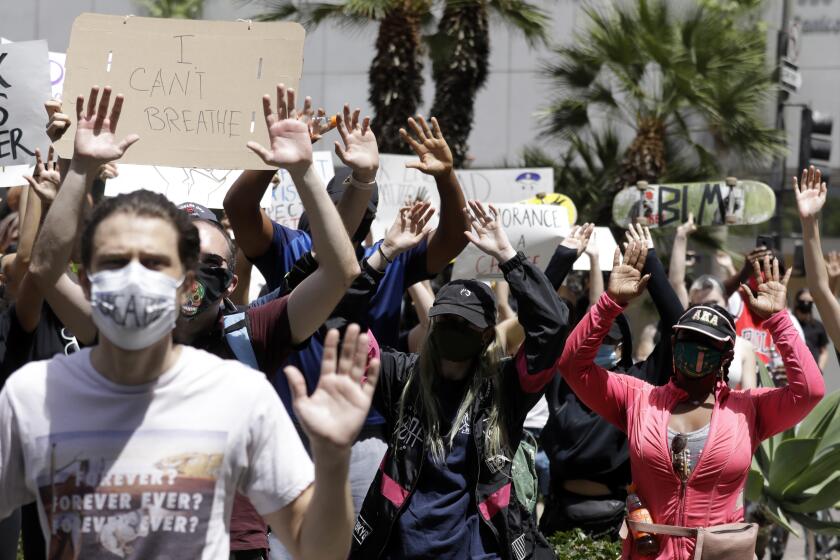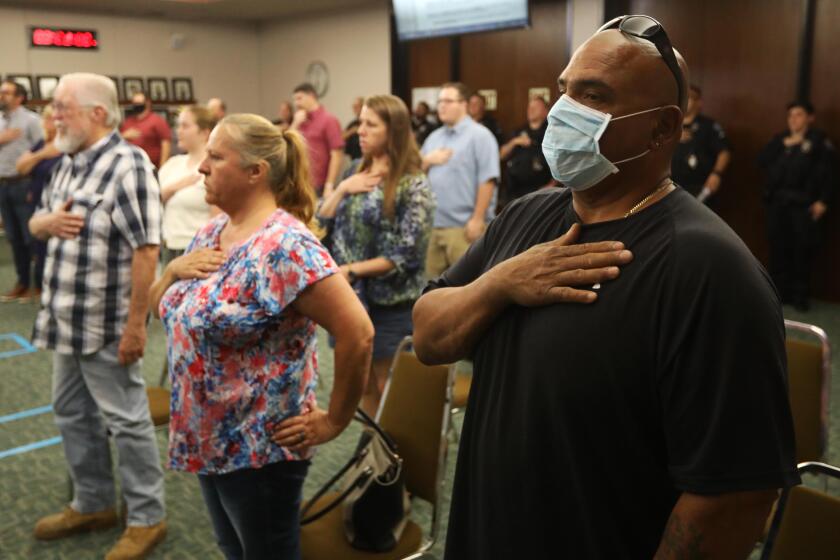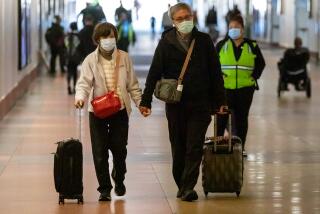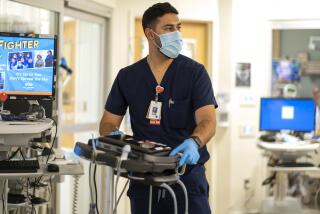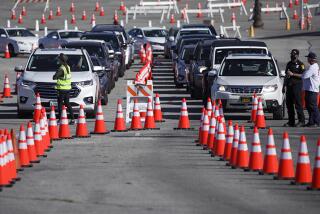California coronavirus cases surpass 120,000; protests, closed testing sites worry health officials
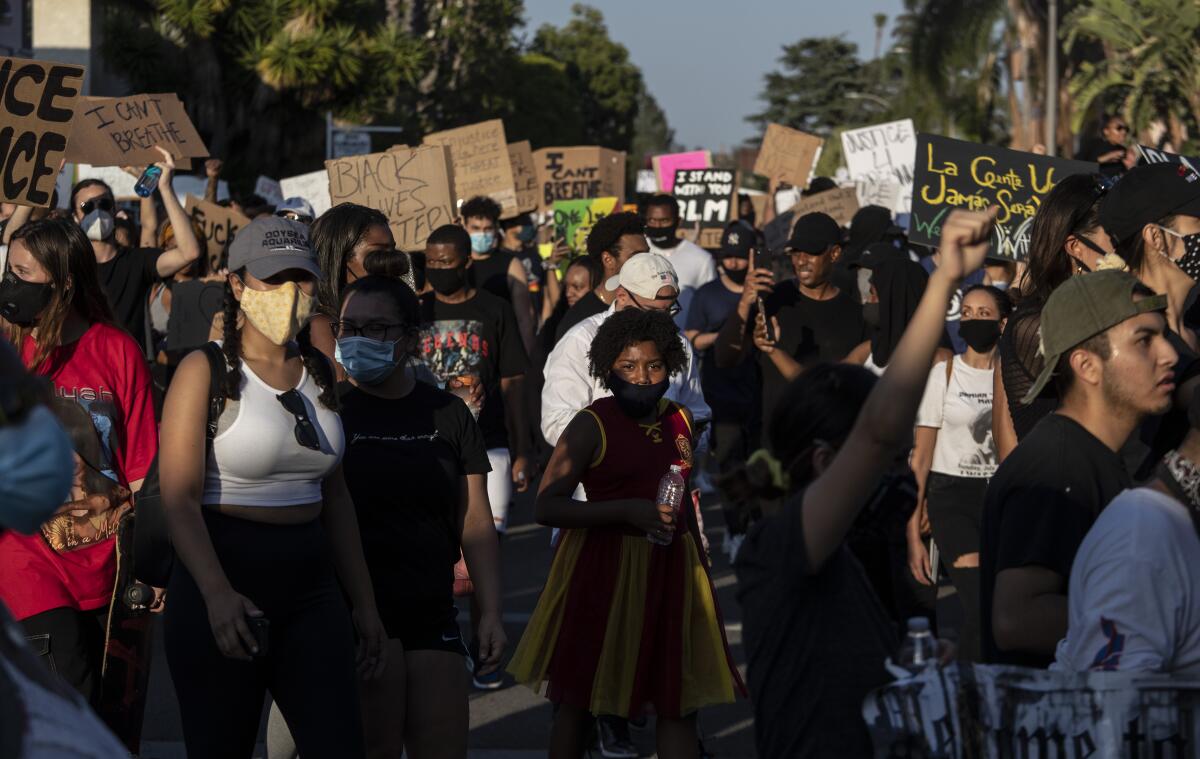
With protests across California decrying the death of George Floyd in their seventh day, health officials continue to sound the alarm that such close gatherings are likely to contribute to the spread of the coronavirus.
The number of confirmed cases in California surpassed 120,000 on Thursday, with the death toll reaching more than 4,400.
The long-standing anger over killings like that of Floyd — who was pinned to the ground as a white Minneapolis police officer pressed his knee into Floyd’s neck — and the newer threat of the COVID-19 outbreak have become a joint crisis. The virus has been especially devastating to black communities, where a disproportionate share of COVID-19 deaths have occurred.
But people motivated to demonstrate against systemic racism now must weigh the risks of protesting during the pandemic. Many say it’s worth it.
Officials fear protests are ‘super-spreader’ events for coronavirus. Marchers say worth the risk
Health officials, however, are troubled and continue to warn that the virus has not changed, despite eased restrictions allowing some businesses to reopen.
The Public Policy Institute of California on Wednesday released a new poll showing that most Californians were wary of reopening too quickly amid the continuing pandemic.
The poll found widespread support for current statewide restrictions implemented to curb the spread of the virus. Some even want tougher safeguards, and many remain fearful about contracting COVID-19 and ending up in the hospital.
The virus remains of great concern to Californians. Of those polled, 36% said it was the most important issue facing the state today, compared with 23% who said they believed jobs and the economy were the top concerns.
“They were concerned about their own well-being, and they wanted to see restrictions put in place for their public safety. They are comfortable with maintaining those restrictions rather than loosening them,” said Mark Baldassare, the institute’s president and chief executive. “The anxiety is substantial.”
Experts are worried about the potential for new surges of disease as California reopens.
But massive protests across the nation have sparked fears of a second wave, as thousands of demonstrators shout and hold hands — potentially amplifying the transmission of the virus.
The unrest has led to less testing in Los Angeles County, as many sites were closed or operated under restricted hours during local protests.
The city has kept Dodger Stadium — its largest coronavirus testing site — open since Monday, and more sites have reopened each day since being closed amid a weekend of unrest. Los Angeles Mayor Eric Garcetti said Thursday that all eight city-run testing sites would reopen Friday.
“Los Angeles County is in the midst of fighting an unprecedented pandemic while also facing a state of emergency that impacts public safety,” Dr. Christina Ghaly, director of the county’s Department of Health Services, said in a statement.
“We need to ensure our testing sites are safe for both patients and staff.”
The number of people who have tested positive for the virus — and the number of deaths linked to the virus — continue to rise in the county, though at a much less rapid clip.
As of Thursday, there were more than 59,000 confirmed cases and more than 2,500 deaths.
Over the last week, the county has averaged 1,405 new cases and 41.6 new deaths per day.
More to Read
Sign up for Essential California
The most important California stories and recommendations in your inbox every morning.
You may occasionally receive promotional content from the Los Angeles Times.
